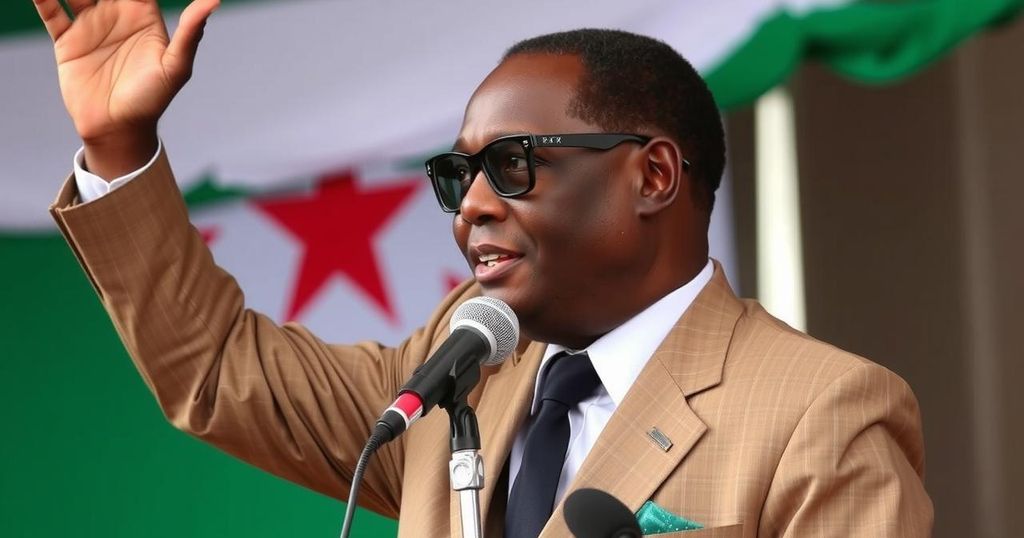Ghana’s 2024 Elections: NPP’s Downfall Amidst Economic Crisis
In Ghana’s 2024 elections, the ruling NPP was ousted after eight years due to significant public dissatisfaction rooted in economic challenges. The opposition NDC capitalized on these issues, winning crucial votes and parliamentary seats. Rising inflation, unemployment, and government mismanagement led to the electorate’s shift in support toward the NDC, demonstrating a broader trend of electoral change in Africa.
In the recent 2024 elections in Ghana, citizens voted to oust the ruling New Patriotic Party (NPP), marking a significant political shift in a country where no party has managed to remain in power for more than eight years since the commencement of democratic elections in 1992. The NPP’s campaign to ‘break the eight’ was challenged by widespread dissatisfaction over the country’s economic management, particularly amid a severe cost of living crisis exacerbated by global events such as the COVID-19 pandemic and the Russia-Ukraine war. The opposition National Democratic Congress (NDC) capitalized on these challenges, positioning itself as a viable alternative to the ruling party.
The ruling party’s anticipated loss was substantiated by numerous surveys conducted prior to the elections, which indicated a sharp decline in public support for the NPP. Observers noted, “The state of the economy caused the NPP government to lose this election,” reflecting the sentiment of voters grappling with high inflation rates, increased unemployment, and an overall economic downturn. Many Ghanaians expressed frustration over the government’s focus on policies such as free senior high school education while neglecting more pressing economic needs, including affordable food and healthcare.
In previous years, the NPP attempted to rally support through their policy initiatives, which included building new hospitals and expanding digital services; however, many voters perceived these promises as inadequate given the dire economic realities facing the populace. The growing costs of multiple taxes and high youth unemployment rates further alienated young voters, leading many to back the NDC led by John Mahama.
Significantly, post-election analyses show that the NPP lost numerous parliamentary seats, including those held by prominent ministers, indicating a substantial loss of public trust in their leadership. This election cycle reflects a broader trend occurring throughout Africa, where ruling parties are facing unprecedented electoral losses due to various challenges, including economic crises and corruption.
The surprised results of the 2024 elections suggest not only a rejection of the NPP’s policies but also a pivotal moment for Ghanaian politics, potentially reshaping the nation’s future governance as the NDC aims to address the myriad issues plaguing the economy, thus reaffirming the cyclical nature of political power in Ghana.
The political landscape in Ghana has seen significant electoral shifts in recent years, particularly following the establishment of its Fourth Republic in 1992, during which no government has retained power for more than eight years. As the NPP sought to extend its reign through campaign promises framed around economic recovery and development, the socio-economic challenges faced by the populace—including a marked increase in inflation and unemployment—captured the attention of the electorate. The strong response from the opposition, leveraging these issues, reflects the continued fluctuations common in democratic transitions across African nations, where ruling parties often face backlash amid economic distress and corruption concerns.
The 2024 elections represent a critical juncture for Ghana, illustrating the electorate’s capacity to effect change in response to inadequate governance, particularly in times of crisis. The NPP’s defeat serves as a reminder of the importance of addressing public concerns regarding economic stability and corruption. The NDC, now poised to lead, must navigate these challenges effectively to reinstate public confidence and foster national recovery in the years ahead.
Original Source: www.bbc.com




Post Comment